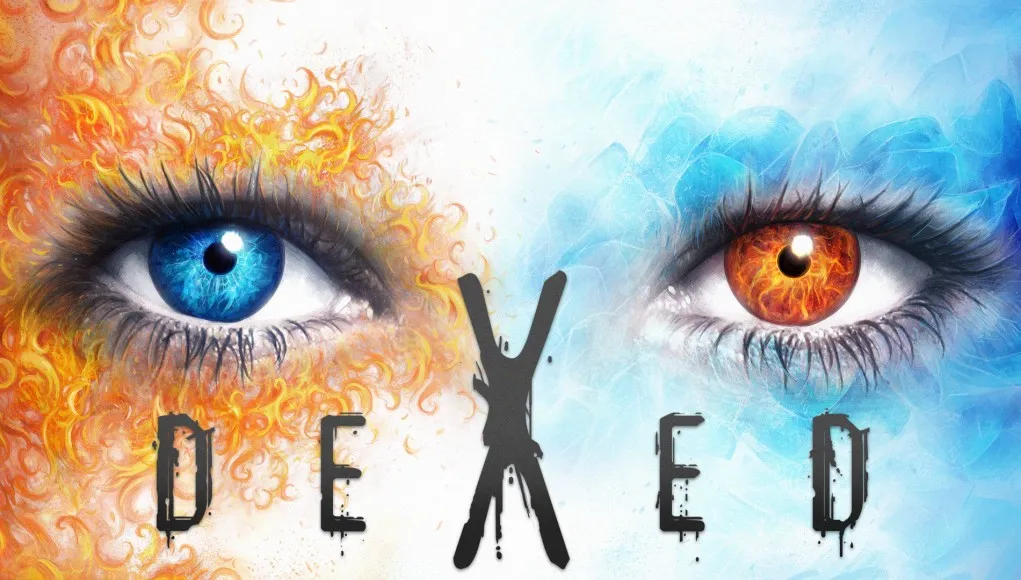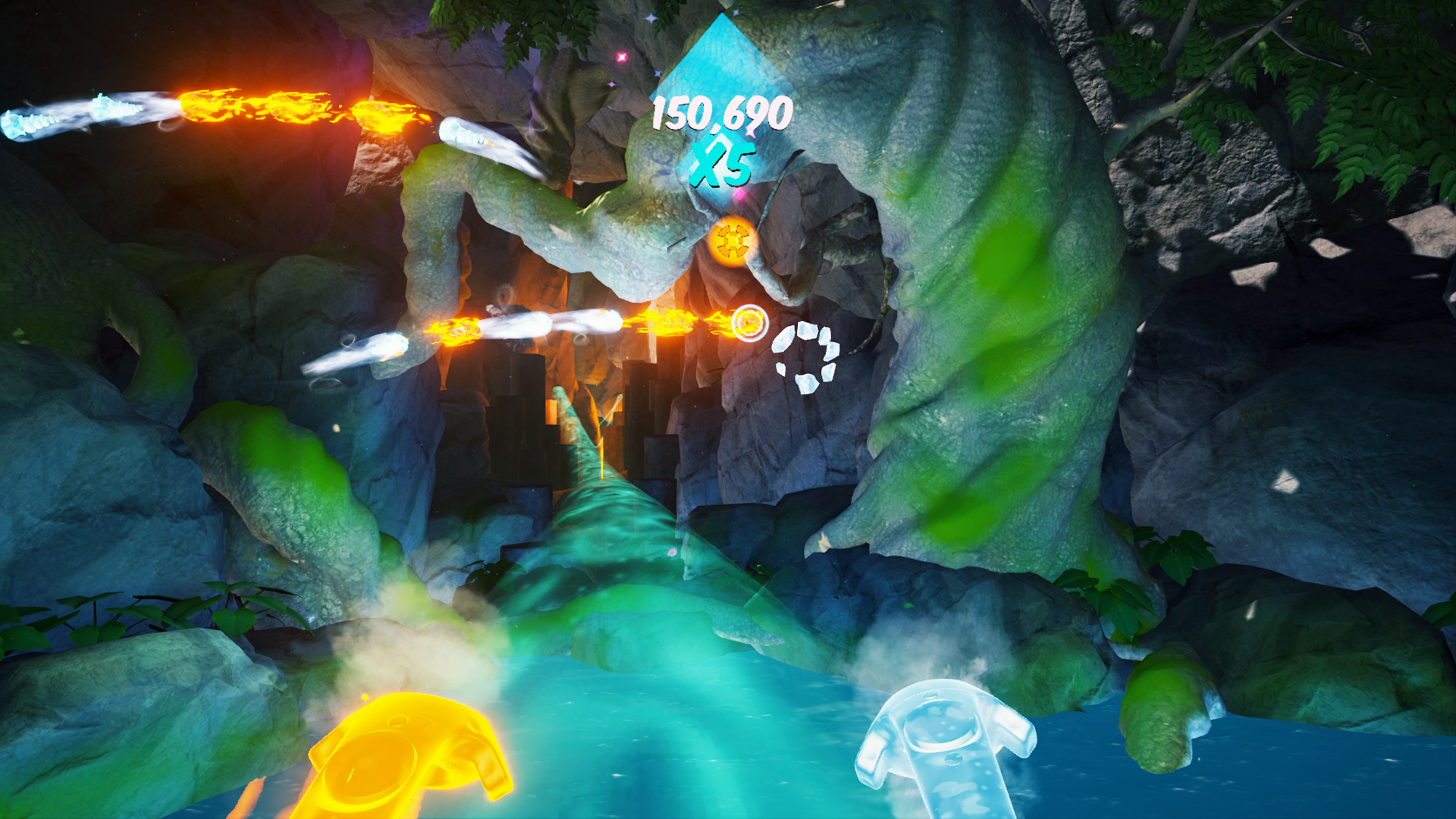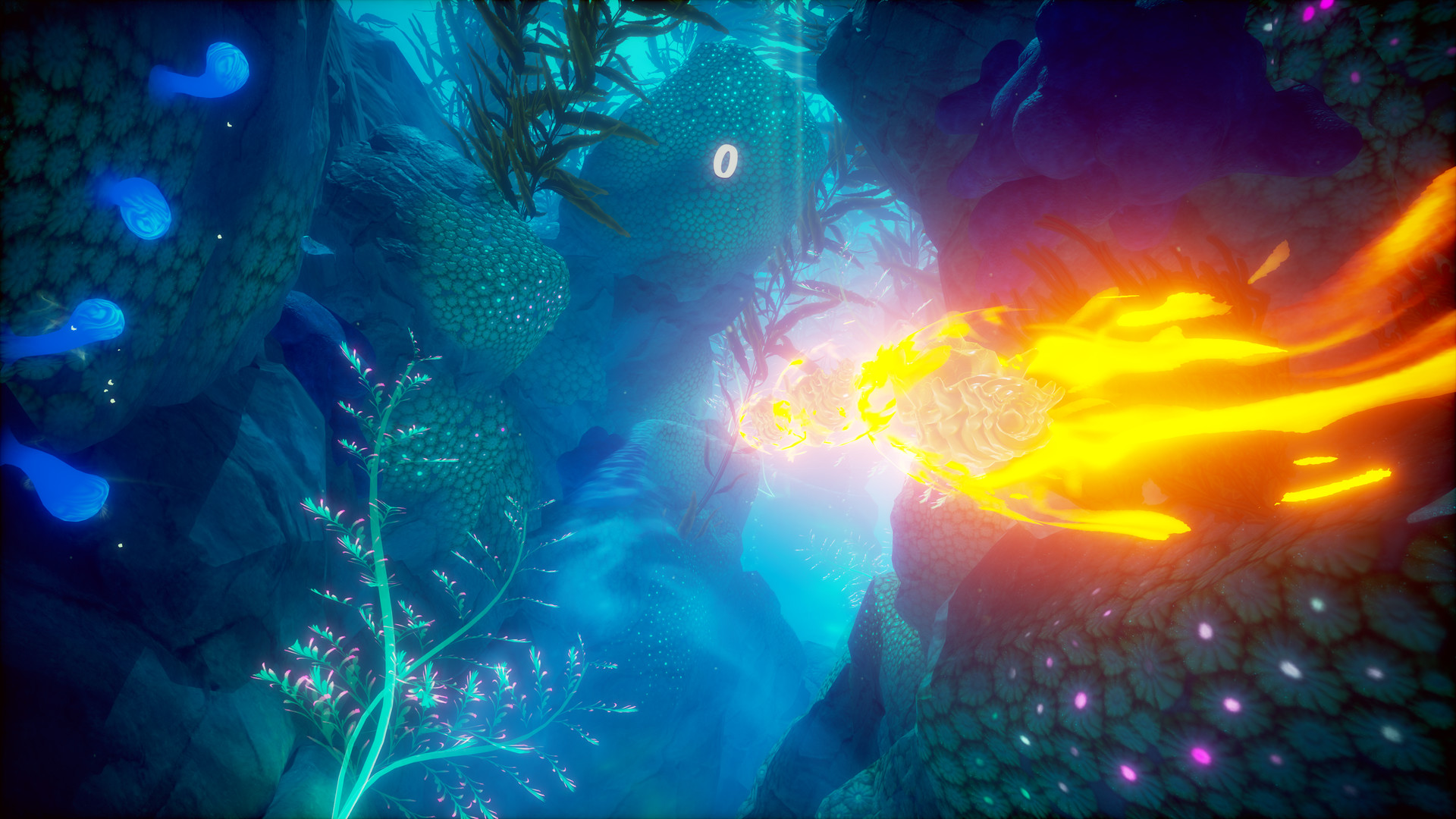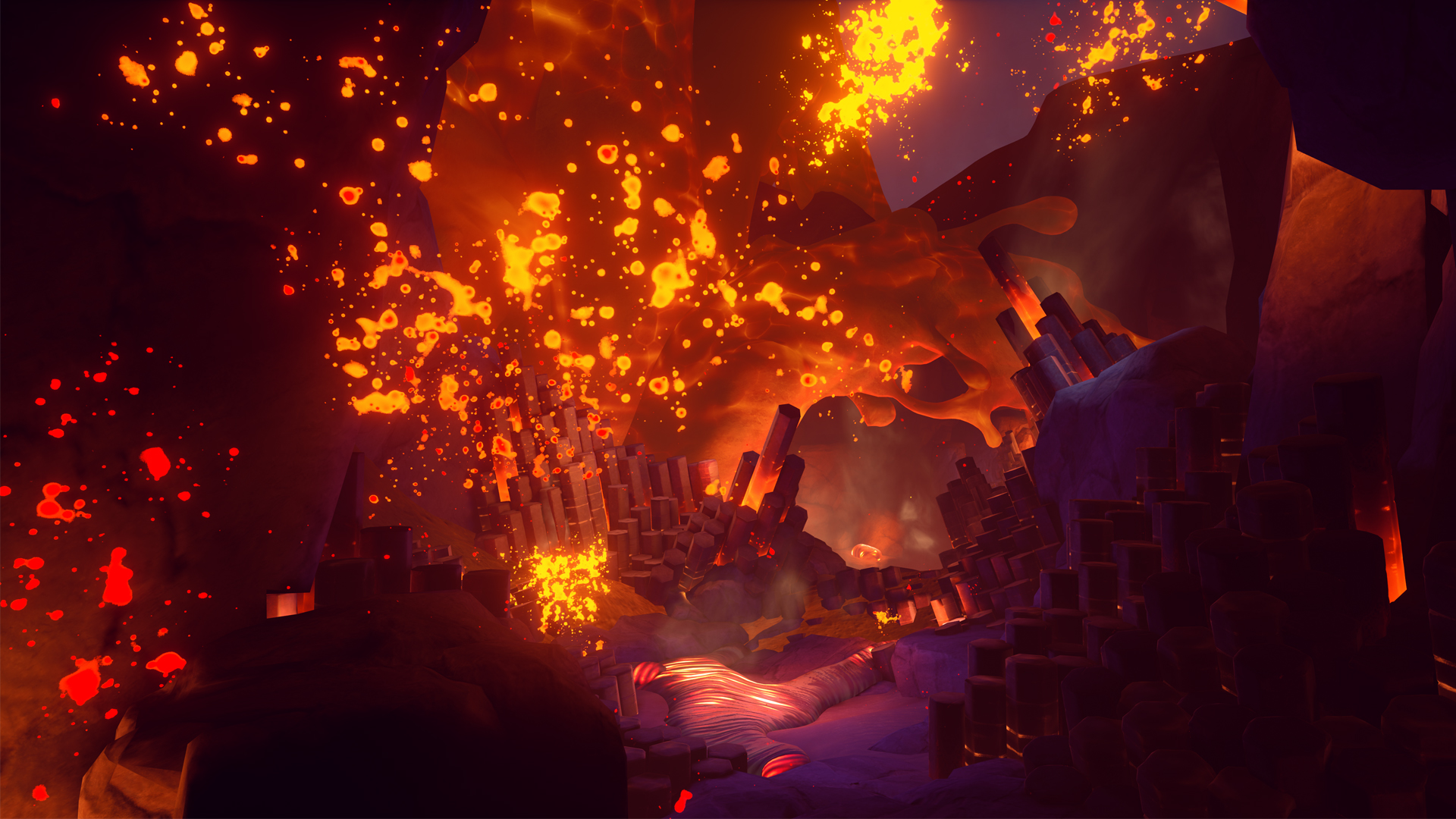Ninja Theory is a well-known AAA game development studio responsible for marquee games like DmC: Devil May Cry, as well as cult classics such as Enslaved: Odyssey to the West and Heavenly Sword. With their big, forthcoming follow-up to Heavenly Sword on the horizon, simply known as Hellblade, Ninja Theory have also released their first completed VR project as a surprise: DEXED.
Born from an internal game jam at the Ninja Theory studio, DEXED is a modern re-interpretation of the classic on-rails shooter genre, heavily inspired by Panzer Dragoon and Ikaruga. Using a “paint to target” mechanic similar to those games, DEXED puts you in VR through the HTC Vive and turns each motion controller into an elemental projectile blaster. What ensues is part puzzle game and part shooter, which adds up to a fun, albeit brief, experiment.
When we originally caught wind of the game’s release, we were (along with the rest of the world) caught a bit off guard. Instead of investing resources into a big VR project for Rift, Vive, and PS VR to kickstart the new medium, the studio opted for a smaller, experimental game. There is a lot of potential with this concept, even if much of it is lost in the earnestness to complete the tiny project.
The entire game consists of four base levels — a jungle, an underwater level, a fire level, and a snow level — climaxing in a boss battle against a menacing octopus. Throughout the experience, the controls remain simple: one hand shoots ice crystals and the other shoots fire bolts. You hold the trigger and paint the corresponding hand’s cursor over enemies of the opposing element, then let go once you’ve marked several to shoot them all. For example, I would hold the trigger on my ice controller, paint the fire enemies, then let go, and the bolts all home in on the marked targets.
You can also cancel targets if you mark the wrong type, because if you do accidentally hit the wrong type, they’ll fire back. Getting hit by fire will “burn” your score, causing it to decrease over time, whereas getting hit with ice will “freeze” your score, preventing you from gaining any points. Since each level takes place on a rail, with a steady pace that can’t be altered, each and every enemy you miss are massive missed opportunities to build your score multiplier.
The stages each have three difficulty levels (Easy, Medium, and Hard) and only last around 5 minutes each, totaling anywhere from 20-30 minutes of content. There is a leaderboard showing both Global and Friend rankings, so you have plenty incentive to keep trying levels to get better.
It’s a simple game that accomplishes its purpose well and the stages are all strikingly beautiful to behold. It would have been nice if there was an option to just stop and look around, or a fly-through mode to explore the worlds in more detail. I’d have enjoyed a Zen mode as well, without enemies, to just enjoy the scenery and music. Nothing like that exists right now.
There is also a ton of room for improvement and iteration on this concept, with different enemy types, more elements, and potentially more diverse gameplay options. Combining these mechanics with a more open world design, or the ability to freely explore, would dramatically open up opportunities. But what we have at this moment is nothing more than a simple experiment.
Update: Since launch, this game has received additional content updates expanding the options of things to do.
DEXED by Ninja Theory is a fun on-rails shooter that brings back a classic gameplay mechanic tasking you with targeting enemies as you pass them by to rack up points. There are only a handful of levels and it takes just around 30 minutes to play the entire game, so despite the fun, it’s short-lived. Fans of the genre should check this one out, but it’s far from being a must play in the Steam VR library.
DEXED is now available on Steam with HTC Vive and Oculus Rift support, Oculus Home with Rift support, and PlayStation 4 with PlayStation VR for $9.99. This review was originally published in September of 2016 and has since been updated to include information on the PS VR release. Read our Game Review Guidelines for more information on how we arrived at this score.






























